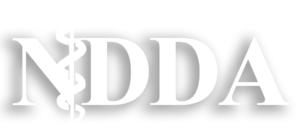Programs Overview
The Nigeria Diaspora Doctors Association (NDDA) is committed to making a positive impact on communities, both within the diaspora and in Nigeria, through a range of Community, Health, and Social Interventions programs. These initiatives aim to address public health challenges, provide healthcare education, and contribute to community development. While specific programs may evolve over time, here is a sample list of potential NDDA interventions:
- Community Health Outreach Programs:
- Mobile health clinics to provide essential healthcare services, including screenings, vaccinations, and basic medical care, to underserved communities.
- Health Education Campaigns:
- Workshops, seminars, and awareness campaigns on various health topics, empowering communities with knowledge to make informed health decisions.
- Maternal and Child Health Initiatives:
- Programs focused on improving maternal and child health, including antenatal care, postnatal support, and childhood vaccinations.
- Disease Prevention and Control:
- Initiatives targeting the prevention and control of prevalent diseases, such as malaria, HIV/AIDS, and other communicable diseases.
- Nutrition and Wellness Programs:
- Educational programs promoting healthy nutrition, lifestyle choices, and overall wellness to prevent non-communicable diseases.
- Public Health Research Projects:
- Research collaborations with local communities to understand health needs, gather epidemiological data, and implement evidence-based interventions.
- Community Empowerment through Education:
- Educational initiatives focusing on health literacy, hygiene practices, and preventive measures to empower communities to take charge of their health.
- Infrastructure Development:
- Collaborative efforts to improve healthcare infrastructure, including supporting the construction or renovation of health facilities in underserved areas.
- Telemedicine for Underserved Communities:
- Telemedicine programs to bring healthcare services to remote or underserved communities, providing virtual consultations and medical advice.
- Disaster Response and Relief:
- Preparedness and response programs to address health needs during natural disasters, emergencies, or health crises.
- Health Equity and Access Initiatives:
- Advocacy and interventions aimed at reducing healthcare disparities and improving access to quality healthcare services for marginalized populations.
- Youth Health and Education Programs:
- Programs targeting youth to address health issues relevant to their age group, including sexual and reproductive health education.
- Community-based Mental Health Support:
- Initiatives focused on raising awareness about mental health, reducing stigma, and providing support services in collaboration with mental health professionals.
- Collaboration with Local NGOs and Organizations:
- Partnerships with local non-governmental organizations and community groups to leverage resources and collective efforts for impactful interventions.
- School Health Programs:
- Health and wellness programs implemented in schools to promote healthy habits among students and create a foundation for lifelong well-being.
These programs reflect the NDDA’s commitment to using its expertise and resources to improve the health and well-being of communities, reflecting a holistic approach to healthcare and social interventions. The specific programs may vary over time, responding to the evolving needs and challenges faced by the communities served.
